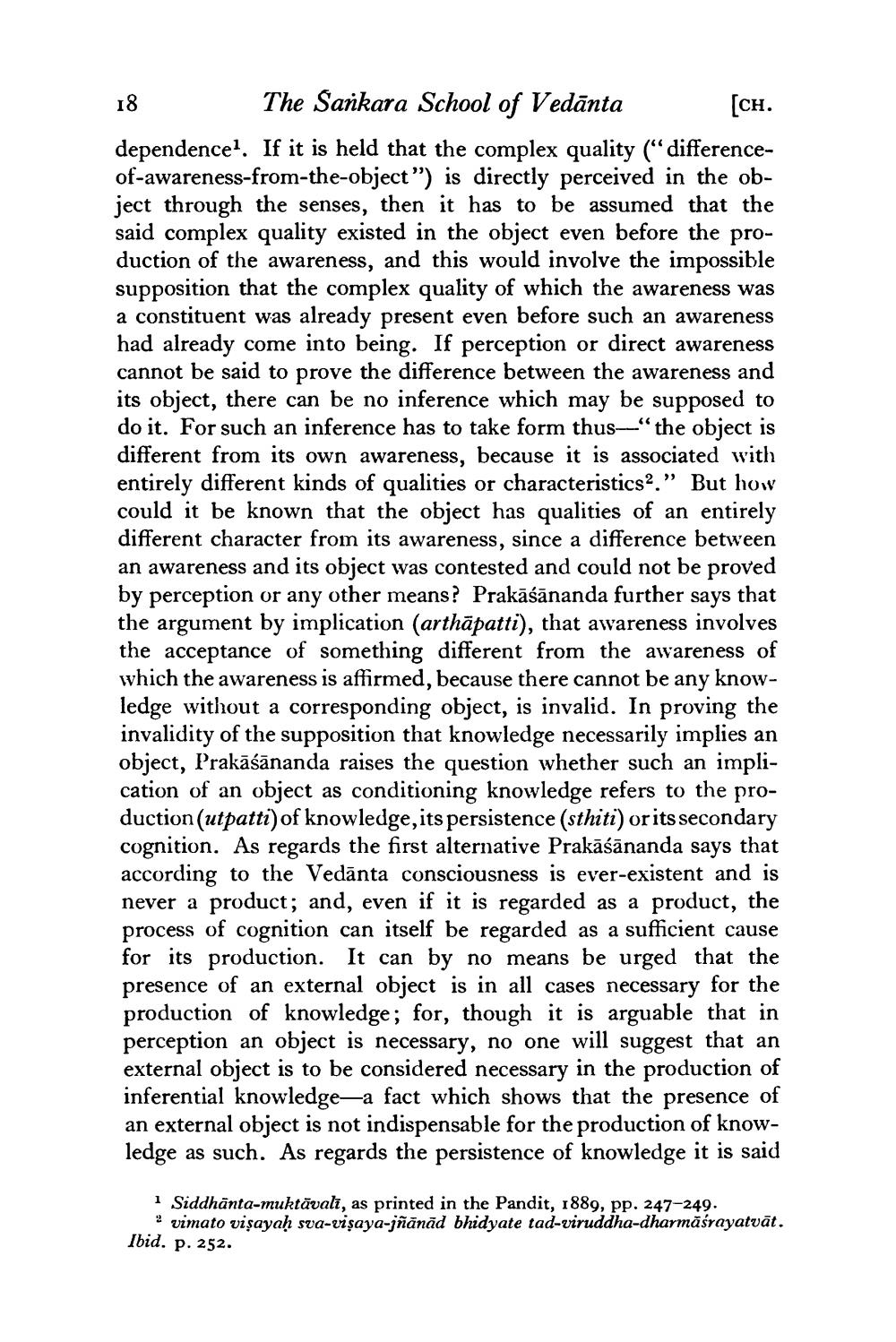________________
18
The Sankara School of Vedānta
CH. dependence. If it is held that the complex quality ("differenceof-awareness-from-the-object”) is directly perceived in the object through the senses, then it has to be assumed that the said complex quality existed in the object even before the production of the awareness, and this would involve the impossible supposition that the complex quality of which the awareness was a constituent was already present even before such an awareness had already come into being. If perception or direct awareness cannot be said to prove the difference between the awareness and its object, there can be no inference which may be supposed to do it. For such an inference has to take form thus-“the object is different from its own awareness, because it is associated with entirely different kinds of qualities or characteristics?.” But how could it be known that the object has qualities of an entirely different character from its awareness, since a difference between an awareness and its object was contested and could not be proved by perception or any other means? Prakāśānanda further says that the argument by implication (arthāpatti), that awareness involves the acceptance of something different from the awareness of which the awareness is affirmed, because there cannot be any knowledge without a corresponding object, is invalid. In proving the invalidity of the supposition that knowledge necessarily implies an object, Prakāśānanda raises the question whether such an implication of an object as conditioning knowledge refers to the production (utpatti) of knowledge, its persistence (sthiti) orits secondary cognition. As regards the first alternative Prakāśānanda says that according to the Vedānta consciousness is ever-existent and is never a product; and, even if it is regarded as a product, the process of cognition can itself be regarded as a sufficient cause for its production. It can by no means be urged that the presence of an external object is in all cases necessary for the production of knowledge; for, though it is arguable that in perception an object is necessary, no one will suggest that an external object is to be considered necessary in the production of inferential knowledge—a fact which shows that the presence of an external object is not indispensable for the production of knowledge as such. As regards the persistence of knowledge it is said
1 Siddhānta-muktāvalī, as printed in the Pandit, 1889, pp. 247-249.
2 vimato visayaḥ sva-visaya-jñānād bhidyate tad-viruddha-dharmasrayatvāt. Ibid. p. 252.




